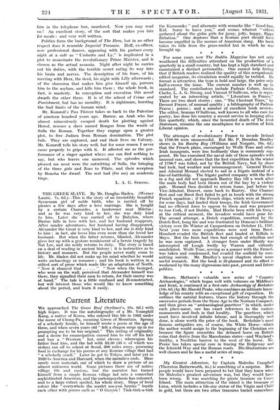The attempts of revolutionary France to invade Ireland in 1796-98
were unsuccessful. But Mr. P. Brendan Bradley shows in his Bantry Bay (Williams and Norgate, 10s. 6d.) that the French plans, encouraged by Wolfe Tone and other Irish insurgents, were less foolhardy than is commonly sup- posed. He has examined the naval side of these episodes with unusual care, and shows that the first expedition in the winter of 1796-7 was foiled, not by the British Navy, but by sheer bad luck, bad weather and mismanagement. General Hoche and Admiral Morand elected to sail in a frigate instead of a line-of-battleship. The frigate parted company with the fleet in a fog and did not approach Bantry Bay till a week after the main body had been blown out of the bay by a violent gale. Morand then decided to return home, just before his Vice-Admiral, Bouvet, came back to Bantry. Our Channel fleet and our Brest fleet failed to get in touch with the strong French squadron ; if the French ships, which were at Bantry for some days, had landed their troops, the Irish Government had no efficient force to oppose to them and was prepared to lose Cork, if not Dublin. Had Hoche been with his troors at the critical moment, the invaders would have gone far. The second attempt, a Dutch expedition, escorted by the Dutch fleet, hung fire and was frustrated by Duncan's brilliant victory over De Winter at Camperdown on October 11, 1797. Next year two more expeditions were sent from Brest. Humbert evaded the British fleet and landed at Killala in Mayo. But the Irish had then had enough of rebellion and he was soon captured. A stronger force under Hardy was intercepted off Lough Swilly by Warren and virtually annihilated. Wolfe Tone, serving as a gunner with the French, was taken and condemned, but evaded the scaffold by com- mitting suicide. Mr. Bradley's naval chapters show some useful research. But the book is ill-planned and its effect is weakened by the many digressions into past, present and future politics.






























 Previous page
Previous page